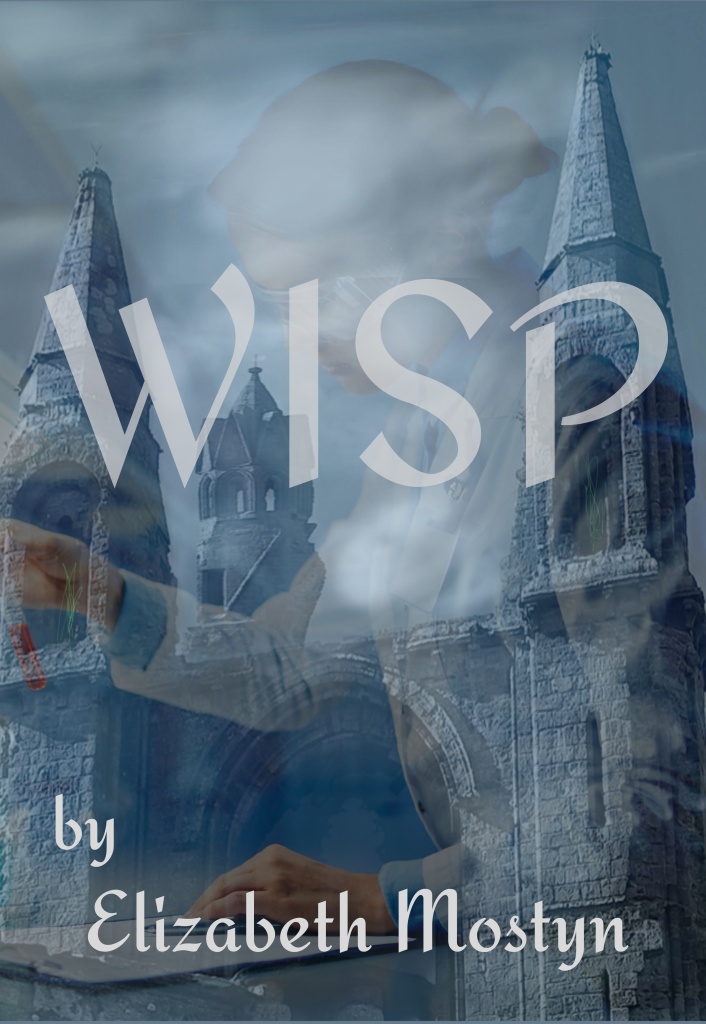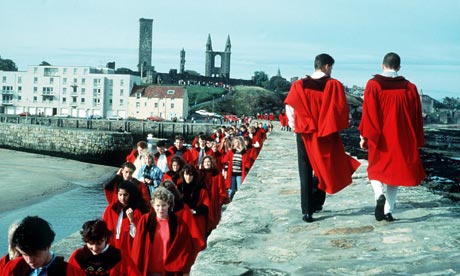Wisp – a very partisan review, by a friend of the author…
Disclosure: Liz Mostyn is a friend of half a lifetime’s standing and I have loved Wisp since its first draft, when it was less polished than it is now; and have put some of my own energies into polishing it. I want other people to read and love it, too: I am not unbiased in the least.
That said, I do love Wisp, uncomplicatedly, as a reader; and I wouldn’t review a bad novel for any number of friends – not if I wanted them to remain friends!
One is supposed, in a review, to be orderly and tell the reader important things about the characters and plot – somewhere near the beginning, usually. The publisher classifies Wisp as science fiction: strictly true, and it’s definitely a novel where science matters, although it doesn’t feel especially science fictional. If I were shelving it, I’d lean towards mystery: it conforms to certain genre conventions; it’s story driven; there is a mystery to be solved, and a wrong to be righted. Although it’s also decidedly a novel of ideas and human relationships, the literary novel of the same themes would be different.
The central character, then, is a middle-aged biologist, Ben, who has recently had some unusual experiences. As we read, some questions emerge about his mental condition, and we notice some inconsistencies in his account of himself – there’s the odd quite jarring moment. I often find this kind of thing queasy – have been known to want to defend characters from their serious and conscientious authors, and even from their authors’ good intentions. Mostyn’s treatment is firmly rooted in the human and fundamentally feels fair[1] – it doesn’t require Ben to be either type specimen or counter-example, but allows him to be himself, perplexed by a present problem, and somewhat beset by others’ ideas about him.
Alongside Ben are his somewhat alarmingly effective niece, Christabel, whose purposes are a little obscure; Minnie, a pleasant friend of long standing and a psychiatrist; Jake, a hard-up neuroscientist and stage magician, whose life mostly revolves around work; and Felicity, an enterprising doctoral student in Jake’s lab. Each has their own concerns, but they converge on the central problems of what is happening to Ben, and what possible interest the military might have in curing Parkinson’s disease – or what it is they’re really interested in.
I enjoy books with big ideas[2] and good stories; I have a strong preference for immersive fiction; I like to be taken somewhere unexpected; and I like to travel with characters who interest me.[3] Wisp fulfils all those hopes. The novels I love, though, have heart: Wisp has heart. It isn’t an easy quality to define: unsatisfactorily, I know it when I see it. BeckyChambers‘ work has it; Sybil Marshall’s novels have it; much of Terry Pratchett’s work has it – with Pratchett, it grew as he matured in his craft.
I can’t even say it rests on anything so fluffy as the author’s liking people – can you really say that Pratchett liked people? But he thought they mattered. You could say the same of Mostyn: while her fondness for her characters is clear (this is a first novel, after all: of its kind, a little lumpy in places, but lambent with long love and long living with the characters and their situation), she has a sharp and sardonic eye for human failing – and she takes for granted that people matter, failings and all.
This is a St Andrean novel – not an especially Scottish novel, not precisely a campus novel, but decidedly a novel set Here, not There, and among these (sometimes only too recognisable) people, not those. There’s something reminiscent of Phil Rickman in the emergent sense of place: the way small, solid, mostly unimportant details of location support our sense of the undercurrents and self-conceits and long habits which create a local culture; and the ways people therefore behave and experience life. It’s not original to remark that the art of the novelist is to illuminate the universal through the particular (or vice versa); little’s as universal as human nature, although the curious blindnesses of human institutions might come close.
It happens that universities house people who have considerable talents and considerable opinions of their own talents, and for whom fascinating ideas are sometimes a little more real than their effects; from which flows the plot. I have to admit that when it comes to people who know their own talents a little too well (I’m avoiding giving too much away, here), the idea Mostyn’s wrestling with occasionally overtakes the flow of writing. Equally, there are some delicious moments and some delightful characterisation; and the story carries one along.
Wisp isn’t a funny novel, but it is one alive to humour – the odd, unobtrusive in-joke between reader and author, the odd tweaking of a tail which just begged to be tweaked (which does tip into indiscipline for a moment, although this reader quite enjoyed it anyway), the occasional gentle rightness.
Another quality I appreciate: the interplay of light and darkness. There’s plenty of light here – it’s no spoiler to say that right prevails at the last, or that for right to prevail there must be wrongs to prevail against. They’re pretty dark! although the author doesn’t rub our noses in the darkness for mere effect.
In particular, there’s the light and dark of the soul or psyche: this is an important theme, how psyche protects itself when injured. Twinned with what exactly we do with the more mysterious promptings of the mind. Ben’s promptings take the form of visions: are they mere hallucinations (are hallucinations mere?), are they religious phenomena (and if so, what on earth is an unbeliever to make of them?), what is their significance? I like the author’s conclusion, and enjoyed how she led Ben to it.
It’s also, despite the occasional vagary of pacing, the sort of novel one stays up too late reading: somewhere between “I should go to bed fairly soon” and “heavens, I should have been in bed an hour ago”, 100 pages have happened.
All in all, Wisp is immensely enjoyable, it has heft without heaviness, and the deft clues (to what? it’s far too much of a spoiler to hint at) and clever, satisfying denouement[4] make it a prize. I hope you’ll love it too, or at least stay up too late over a rattling good tale.
Buy Wisp at P’kaboo Publishers, Amazon (UK) or Amazon (US).
~~~~~~~~~~~~~~~~~~~~~~~~~~~
1: I believe this to be true; and am aware that the majority of readers don’t share my peculiar sensitivities anyway. That said, of all the things I say in this review, this is the one which has most potential to be tainted by my relationship with the author: I trust her to be on the side of her character and of my version of the angels, as I haven’t trusted many authors, even when I recognised their sterling good intentions.
2: To borrow from John Scalzi, whose Big Idea series of author interviews I highly recommend.
3: It’s decidedly possible that ‘interest’ is the wrong word. Is ‘appeal’ the right word? It may be a matter of induced empathy – do I indeed ‘feel with’ this person, are their feelings and thoughts persuasive, do they carry me along?
4: It’s a great pleasure, in closing Wisp at the end or in re-reading it (I’m not a careful first reader, but I am a serial re-reader of the books I love), to recognise the clues unobtrusively distributed through the text; clues to something one didn’t quite know needed to be resolved, but whose resolution is deft and deeply satisfying. It’s a subtle and poignant thread.




 We here at Bookseeker Literary Agency are very pleased to welcome Jessica Secmezsoy-Urquhart as a client. In what is an unprecedented move for us, we have taken on a writer whose novel is not yet complete! We have broken this principle because we believe we have found someone unique…
We here at Bookseeker Literary Agency are very pleased to welcome Jessica Secmezsoy-Urquhart as a client. In what is an unprecedented move for us, we have taken on a writer whose novel is not yet complete! We have broken this principle because we believe we have found someone unique…




 When Hector decided to retire as a musician and devote his time to writing, he settled in the quiet rural town of Westbury, in Wiltshire. His wife Johanna, a soprano who has sung all over Europe, and has been given rave reviews by the Press everywhere, also decided to retire along with him. His death was a great loss to his family, and to this agency.
When Hector decided to retire as a musician and devote his time to writing, he settled in the quiet rural town of Westbury, in Wiltshire. His wife Johanna, a soprano who has sung all over Europe, and has been given rave reviews by the Press everywhere, also decided to retire along with him. His death was a great loss to his family, and to this agency.
 The agency is very pleased to announce that it has secured a commercial publishing deal for its client
The agency is very pleased to announce that it has secured a commercial publishing deal for its client 
 I’m one of those people who likes to read a couple of chapters a night but I just couldn’t put this one down and had to keep going right through to the nail biting finale. Riveting and remarkable, this author really knows how to get you right on the edge of your seat.
I’m one of those people who likes to read a couple of chapters a night but I just couldn’t put this one down and had to keep going right through to the nail biting finale. Riveting and remarkable, this author really knows how to get you right on the edge of your seat.